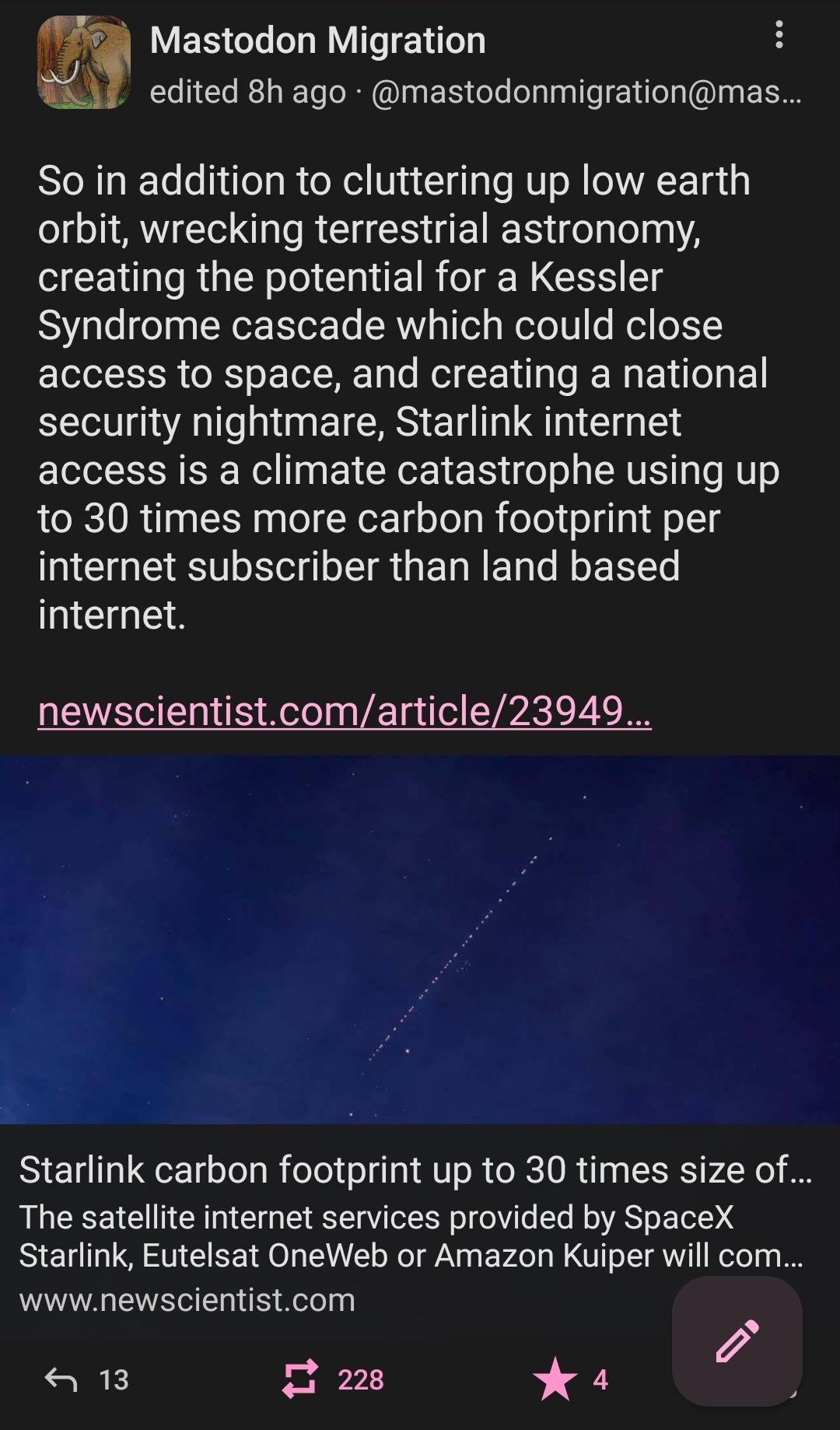this post was submitted on 08 Oct 2023
449 points (85.0% liked)
A Boring Dystopia
9759 readers
1301 users here now
Pictures, Videos, Articles showing just how boring it is to live in a dystopic society, or with signs of a dystopic society.
Rules (Subject to Change)
--Be a Decent Human Being
--Posting news articles: include the source name and exact title from article in your post title
--Posts must have something to do with the topic
--Zero tolerance for Racism/Sexism/Ableism/etc.
--No NSFW content
--Abide by the rules of lemmy.world
founded 1 year ago
MODERATORS
you are viewing a single comment's thread
view the rest of the comments
view the rest of the comments

Spoiler: It's 0.1 tonnes of CO2e per subscriber per year. This is not mentioned in the article.
This includes for example the emissions generated in the course of constructing the rockets that launch the satellites. So far it's unclear to me whether, when comparing to terrestrial telecom, they include e.g. the emissions produced when manufacturing the trucks that deploy the infrastructure.
This also means the amount of emissions per user will go down the more users they get. It’s not very fair to compare something new to something that’s been around for decades in something that is based solely on the amount of users they have. I hate starlink, but this report is trash.
Emissions are going to go down when starship is made as well.
Starship uses a methane + oxygen fuel which burns cleaner, and can be produced with just water and CO2 making it carbon neutral.
I don't think every flight will be neutral immediately, or what % will be consistently once its scaled up, but it'll be better.
But 1 carbon neutral flight sending up hundreds of satellites will bring it down quickly. They could even save the carbon neutral flights for themselves for PR purposes.
Additionally, existing users are mostly in urban centers with very efficient infrastructure, starlink gives high bandwidth internet everywhere.
I'd like to see the CO2e cost of giving a user in the middle of Idaho or Montana a 100Mbps connection.
Thank you, I was wondering how high the emissions could possibly be for Internet access from the customer's perspective. I figured simply owning a car probably smashed even "30x as much" as other ISPs
They almost certainly do not. Embodied energy is conveniently ignored 99% of the time because a) awareness of how much carbon goes into everything could result in consumers consuming less — couldn't possibly do the almighty economy dirty like that — and b) it's extremely difficult to calculate with any reasonable degree of accuracy.